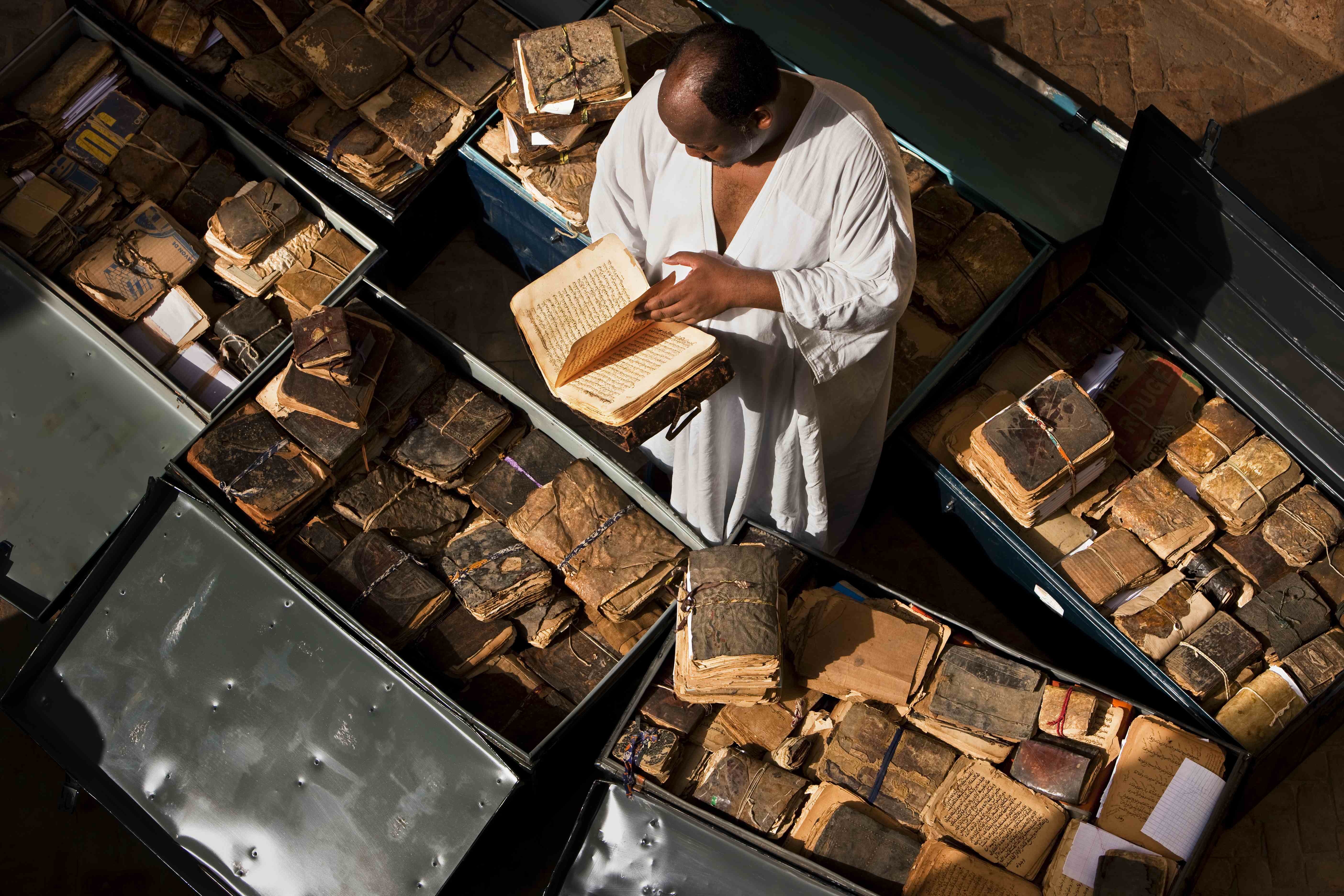【Watch Vidocq Online】
2025-06-25 21:40:24
773 views
352 comments
Timbuktu’s Massive Book Heist,Watch Vidocq Online and Other News
On the Shelf

Abdel Kader Haidara in Timbuktu, 2009. Photo: Brent Stirton/National Geographic
- Today in censored statues: in Italy, the fashionable thing to do with one’s nude statues is not to display them but to conceal them with some plywood or maybe a heavy drop-cloth or whatever else you’ve got lying around. The Capitoline Venus, which resides in the hall of the Capitoline Museums, in Rome, was boxed up last month to preserve the delicate sensibilities of the visiting Iranian president, but really this sort of thing happens all the time: “True, some discussions were had. According to one journalist, questions were raised about the conspicuous testicles of Marcus Aurelius’s horse in the equestrian statue which also graces the hall … This kind of artistic censorship is remarkably common in Italy, to the point of being frequently unreported. As journalist Giovanna Vitale has pointed out, for instance, it had been only five months since a nude by Jeff Koons in a Florentine palace included in the itinerary of sheik Mohammed Bin Zayed al Nahyan was concealed … And—in case you think it’s only heads of state of the Muslim faith who are reserved this peculiar treatment—it was eight months since posters of a Tamara de Lempicka exhibition in Turin … were covered to save the Pope from certain emotional trauma.”
- A few months ago, I used this space to hawk Saul Bellow’s ten-thousand-dollar desk, which was not, at the time, a hot seller. But things have changed. That desk is gone. As Bellow’s son Daniel explained to Atlas Obscura: “All of a sudden, everyone from famous journalists to doctors from the Mayo Clinic contacted him about purchasing his father’s desk … In the end, though, Bellow’s desk was sold to his son’s niece, who matched the top bid at the auction, and kept the desk in the family … The desk will be put in his niece’s new home in Hudson, New York. As for the money from the auction, Daniel says he is going to use it to build a kiln chimney in his new pottery studio.”
- Faced with an al-Qaida invasion, librarians in Timbuktu oversaw a massive smuggling operation in which some 300,000 rare books and manuscripts were secreted away to safety: “The first thing we’re going to do is get them out of these big libraries. We’re going to take trunks. We’re going to pack them into trunks at night when the rebels are asleep, and then we’re going to move them in the dead of night by mule cart to these various houses—safe houses scattered around the city. And hopefully they’ll be safe for the duration of this occupation … They’re in about a dozen climate-controlled storage rooms in Bamako, the capital of Mali.”
- In which Meghan O’Gieblyn decides to give Updike a chance, takes Couples off the shelf, and finds … many things she expected and a few she didn’t: “There was plenty in the book that lived up to Updike’s contemporary reputation: women who think things no woman would think (‘She had wanted to bear Ken a child, to brew his excellence in her warmth’) … There are many passages in which Updike’s prodigious gifts as a prose artist are given over to the effects of gravity on women’s bodies. Nobody can write the female body in decay quite like Updike. So clinical and unrelenting is his gaze, he manages to call attention to signs of aging that even I—someone in possession of a female body—had never considered. ‘Age had touched only the softened line of her jaw and her hands,’ he writes of Piet’s wife, Angela, ‘their stringy backs and reddened fingertips’ … What intrigued me most about Couples, though, was the sense of doom that undercuts the orgy.”
- Jonas Mekas was the first film critic for the Village Voice, and a new collection of his critical writing reveals “an artistic time capsule of New York at a moment of crucial energy”: “There’s a live-wire spontaneity to Mekas’s writing, an excitement sparked by his sense of beauty, by his sheer pleasure in cinematic imagination, and it’s connected to a soulful sense of inwardness and empathy … What energizes his discussions and exhortations is the impulse behind the films, rather than the films themselves—the lives and dreams of the artists, the harsh demands placed on filmmakers by the effort to create homemade, self-financed, independent films, made by oneself and one’s friends. These are films that repudiate openly the conventions of the commercial cinema, the norms and limits on subject matter and representation, while the filmmakers submit to a horrific range of deprivations and afflictions for the sake of their art. In effect, Mekas offers, both in and as film criticism, extraordinary and enduring sketches of downtown lives.”
Search
Categories
Latest Posts
Cash Cows
2025-06-25 21:29Twitter threads can evolve into much larger conversations
2025-06-25 20:17Subway cars get turned into brain
2025-06-25 20:06Who Needs the Office?
2025-06-25 18:54Popular Posts
Seen and Unseen
2025-06-25 21:18China launches self
2025-06-25 20:25Covid Complacence
2025-06-25 19:05Featured Posts
Speeding Away from Zion
2025-06-25 21:38Apple will reportedly delay more than just the iPhone 8 this year
2025-06-25 21:22Horror Stories
2025-06-25 19:12Popular Articles
Going Medieval on Your Gram
2025-06-25 20:54Choreographer delivers the dancing wedding proposal of your rom
2025-06-25 19:50The Sad Clowns of Dating
2025-06-25 19:15Newsletter
Subscribe to our newsletter for the latest updates.
Comments (621)
Information Information Network
Putin’s War Games
2025-06-25 21:25Heat Information Network
'Game of Thrones' power rankings: Who will sit on the Iron Throne?
2025-06-25 21:01Style Information Network
'The queen is home' the internet declares about 'Game of Thrones'
2025-06-25 20:50Highlight Information Network
Infinity book store looks like an endless tunnel of books
2025-06-25 20:37Happiness Information Network
The Reporter Without Borders
2025-06-25 20:09